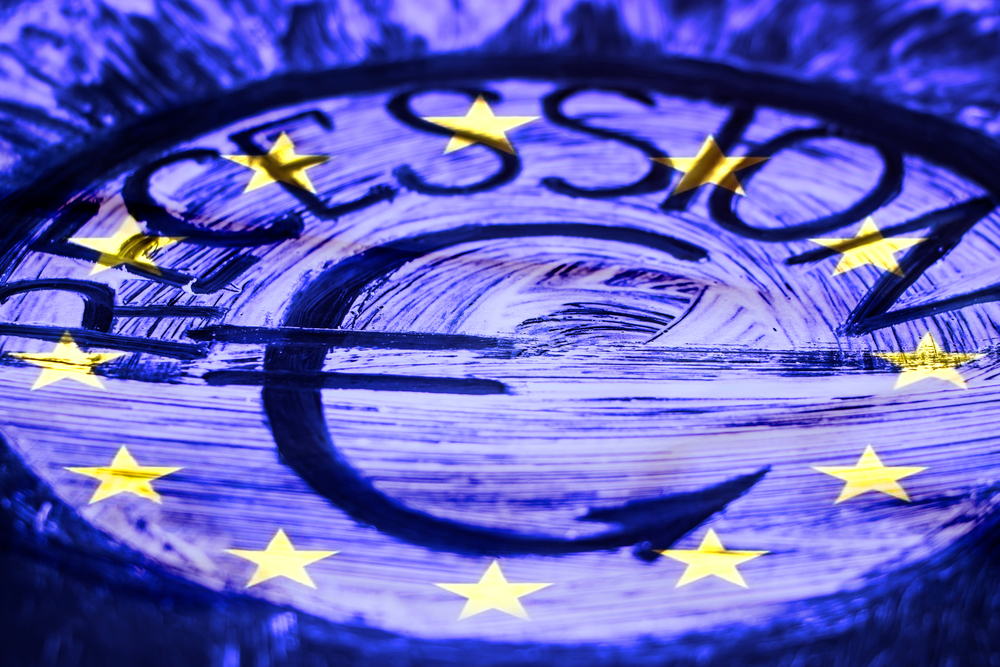
Europe could be in recession by the end of 2024, according to the ECB
The euro made modest gains in yesterday’s session, adding 0.4% against the US dollar and around half that against the pound. GBP/USD rose by around a third of a per cent although there was an absence of punchy macro evidence to back up the swing.
The euro’s climb followed some pessimistic comments on the European economy’s outlook from European Central Bank (ECB) vice president Luis de Guindos. De Guindos said that last year’s rapid disinflation would likely slow over 2024 and the economy could be contracting by Christmas.
It may be a little soon to be thinking of the next festive period, but his comments will probably quell excitement that the ECB will be thinking of interest rate cuts soon. More detail should follow in the publication of this morning’s European economic bulletin.
Anyone watching Bank of England (BoE) governor Andrew Bailey’s remarks to MPs yesterday may have hoped for similarly illuminating comments. Instead, Bailey mostly stuck to rope-a-dope tactics, saying that higher interest rates had not destabilised the financial sector but risks remained from geopolitical uncertainty.
Markets may demand a clearer path to rate cuts in the near future, but for now, Bailey was happy to play his cards close to his chest.
It’s a big day in the US with inflation and initial jobless claims set to arrive. While the dial isn’t expected to have moved too much, core inflation may have dipped beneath the symbolically significant 4% mark in December, having been as high as 7% in the back end of 2022.
Our latest Quarterly Forecast covering the three months from January to March arrives today. Don’t be shy to secure your copy – the report is free to download and contains expert Q1 predictions as well as what’s in store for major global currencies in 2024.
Government debt yields fell yesterday across auctions for UK (gilt), German (Bund) and US (treasury) government bonds. The price of sovereign debt moves in inverse correlation to its yield, reflecting a slightly increased confidence in the economic landscape.
After years of spiralling costs, the latest estimate for the London–Birmingham leg of the HS2 high-speed rail project is now £67bn. Sir Jon Thompson, chair of HS2, told MPs on Wednesday that was the official estimate for what remains of the controversial scheme in current prices.
UK alcohol manufacturing Brewdog has backpaddled on its pledge to pay all staff a living wage, which would require a £1 increase from the current hourly rate. New staff will instead be paid at the legal minimum wage, a move that prompted criticism from staff and employment charities.
Make sure any upcoming transactions are protected against the risks of sudden market movements. Secure a fixed exchange rate now with a forward contract; call your Account Manager on 020 3918 7255 to get started.
GBP: Bailey plays coy
GBP/EUR fell by just 0.1% yesterday but sterling climbed by a third of a per cent over the US dollar.
BoE governor Andrew Bailey didn’t say as much as markets hoped during yesterday’s remarks. He approved of high street banks reducing the cost of their mortgage products but expects pressure to grow on him to provide clarity ahead of what is sure to be a volatile year.
GBP/USD: the past year
EUR: Stagflation prediction
EUR/USD climbed by over fourth fourth-tenths of a per cent and by a much thinner margin against the pound.
Don’t shoot the messenger, said the ECB’s Luis de Guindos, but inflation may return and growth could be stunted. The vice president said that recent progress on inflation would likely be eroded over the early stages of 2024, while growth could turn negative towards the end of the year.
USD: Will unemployment rise?
The US dollar continued to bounce around, losing over a third of a per cent to both the pound and the euro.
The question for the US is when will a historically strong labour market start to crack? In theory, that should have already happened with higher interest rates, and forecasts predict last week’s initial jobless claims to nudge up to 210k from 202k. Yet there’s been little evidence the Fed’s tactics have cooled the jobs market, and recent predictions of weakness are overblown.
For more on currencies and currency risk management strategies, please get in touch with your Smart Currency Business Account Manager on 020 7898 0500 or your Private Client Account Manager on 020 7898 0541.

 020 7898 0500
020 7898 0500
